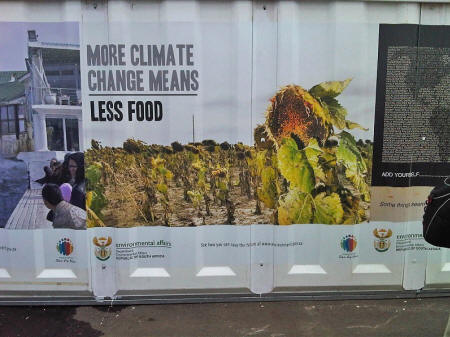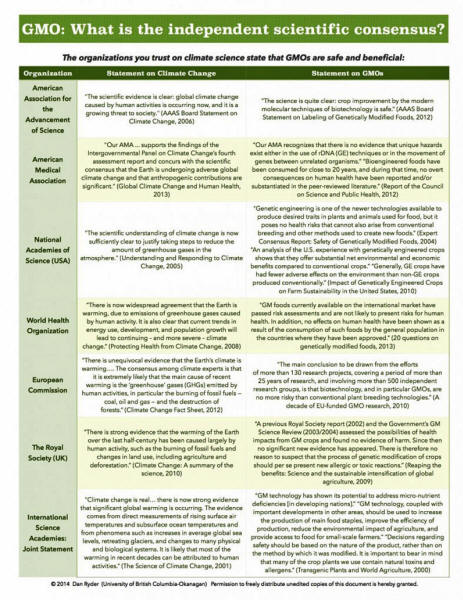|
from
OccupyCorporatism Website
Bruce Campbell, director of the CGIAR Research Program on Climate Change, Agriculture and Food Security (CCAFS) is interested in South Asian farmers reducing,
CGIAR is focused on bringing the ideals of CSR, as promoted by the United Nations Food and Agriculture Organization (FAO) who claims that in the next 30 years,
The approach afforded by a CSR is outlined with 3 clear objectives such as:
To ensure the agricultural future of the entire world, Ban Ki-moon, general secretary of the UN, announced the formation of the Global Alliance for Climate Smart Agriculture (GACSA) to coerce,
The GACSA is focused on making sure,
Part of this scheme includes the use of genetically-modified organisms (GMOs) in the general food supply.
Researchers at the Massachusetts Institute of Technology (MIT) maintain that GMOs will allow farmers of the future to grow crops without worrying about the changes to the climate or weather patterns.
As CGAIR and the UN assert, by 2030 the practicality of feeding and estimated 2.4 billion humans tacked on to the alleged 7.5 billion is a challenge being postulated today with research into how to perfect tools and techniques of the burgeoning CSA.
Two years ago, the FAO stated that farmers globally have,
In fact since 2010, the have stated that the rise in food prices is directly correlated to the 80 million people being added to the world’s population annually.
This fact, according to the globalists at the UN, is beginning to,
Indeed, the World Bank (WB) issued a similar statement on the for the coming food shortage due to the drought devastating the US and Europe.
According to Jim Yong Kim, World Bank group president:
With an estimated 870 million people in the Middle East and Africa becoming malnourished, world environmentalists are saying that the global food supply system is heading toward collapse.
Lester Brown, president of the Earth Policy Institute (EPI), asserts that our planet’s climate can no longer be trusted and that the demand for food from over-population is breaking the proverbial straw on the camel’s back.
Brown says that,
Brown predicts that as "food supplies are tightening everywhere" and agricultural land is becoming a precious commodity, geopolitical perspective will shift from energy to necessity.
He foretells of "armed aggression" focused on "food unrest".
With the assistance of the UN, corporations have begun descending on Africa to aid in the securitization of their natural resources.
Examples like an $11 million dollar project funded by the Bill and Melinda Gates Foundation and the Coca-Cola Corporation are usurping 50,000 Kenyan and Ugandan smallholders to produce fruit for Minute Maid, a subsidiary for Coca-Cola.
According to a 2011 report released by the International Land Coalition, there is a rush by global networks to acquire land in the sub-Saharan region of Africa by foreign corporations and governments which is causing environmental and agricultural devastation along the River Niger in Africa.
The report states:
The outcome was a,
|



